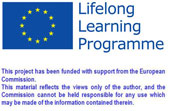
Webmaster: Pinzani.it
You are in: Homepage > Database > Document Form
BASE TEXT
TRANSLATION INFO
BIBLIOGRAPHIC INFORMATION FOR DOCUMENT
TRANSLATION ADDITIONAL INFORMATION
OTHER USEFUL INFORMATION


NEWS
The international conference entitled Translations of Economic Texts into and from European Languages, organized in the framework of the EE-T project, was held at the University of Pisa (Italy) on 11 to 13 September. The aim of the conference was to present the results of researches carried out throughout Europe on the international circulation of economic ideas through translations and adaptations of economic texts. The three days event was attended by around 100 participants representing: lecturers, researchers, students in the field of history of economic thought. More information is available in the Events section